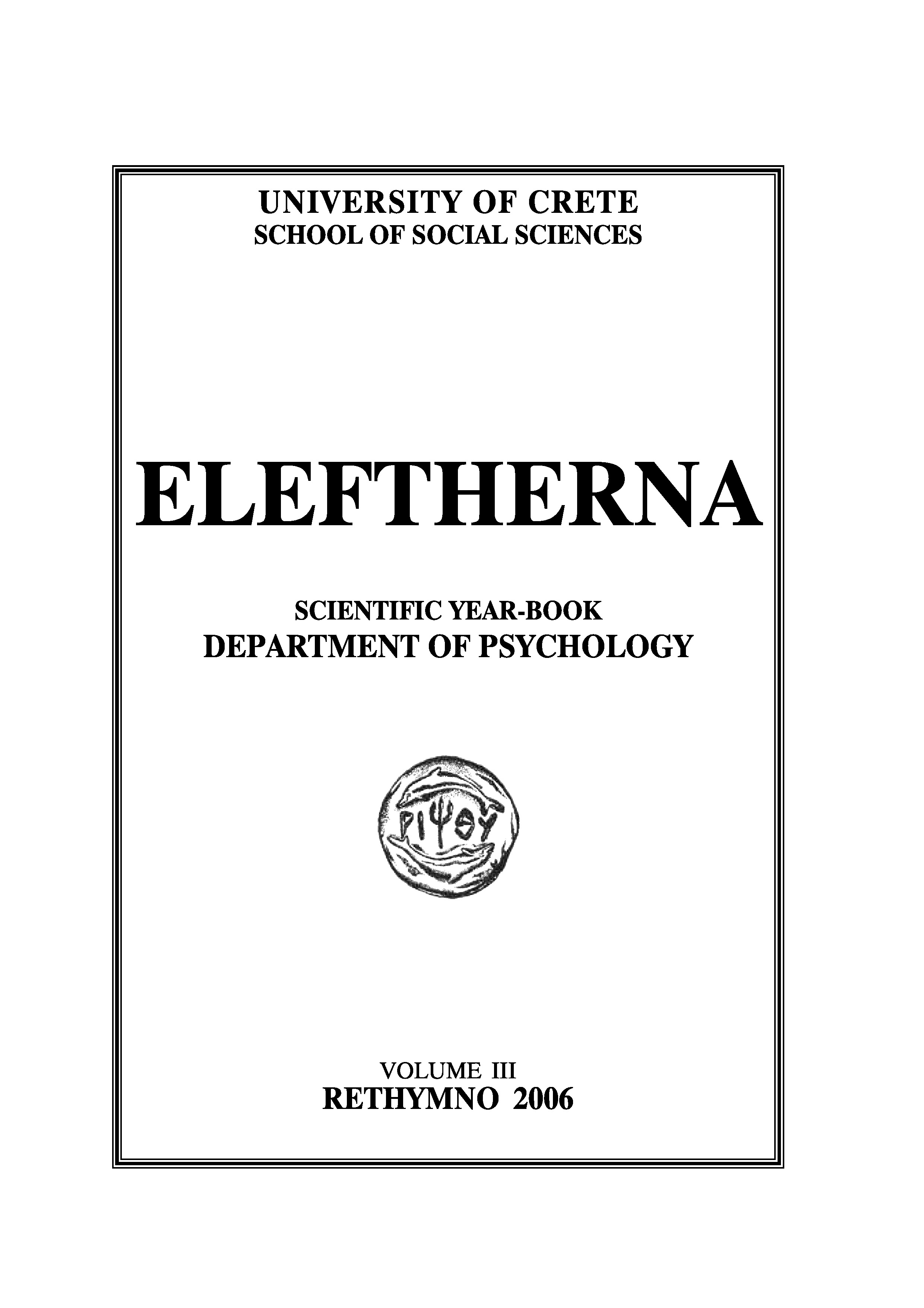Oral and Moral Expression in Language Settings - Implied Dilemmas in Literacy Acquisition: An empirical phenomenological study of 7- to 9- Year-Old Greek Children 's Ethical Reflection on Creative Storytelling
DOI:
https://doi.org/10.26248/eleutherna.v3i0.145Λέξεις-κλειδιά:
children, ethics, phenomenology, creative storytelling, oral language, teachingΠερίληψη
This paper examines ethical concepts in verbal expression of children through
na"ative. The subject group of 82 participants (39 girls and 43 boys), were asked
to tell their own story about the 'sun' as a story character.
They were all 7-9 years old children from Greece interviewed in school settings
and the assembled material was a product of individual interviews in transcribed
na"ation. The method used for the analysis of our data was the Empirical Psychological
Phenomenological method. The results consisted of thirteen qualitative
different categories of ethical meaning, which were decided by judges providing an
image-analysis of the ethical traits and deeds of the heroes involved in children's
stories. Implications for the influence of the educational practice of storytelling on
the development of children's moral criteria as reflected in their oral language are
discussed.
Λήψεις
Δημοσίευση
Πώς να δημιουργήσετε Αναφορές
Τεύχος
Ενότητα
Άδεια
Tα πνευματικά δικαιώματα των συγγραφέων ρυθμίζονται σύμφωνα με την άδεια Creative Commons Attribution-NonCommercial-ShareAlike 4.0 International (CC BY-NC-SA 4.0).
Στο πλαίσιο αυτής της άδειας, το EJPBS παρέχει άμεση πρόσβαση στο περιεχόμενό του με βάση την αρχή ότι η ελεύθερη διάθεση της έρευνας στο ευρύ κοινό καθιστά εύκολη τη διάχυση της γνώσης σε παγκόσμιο επίπεδο.


